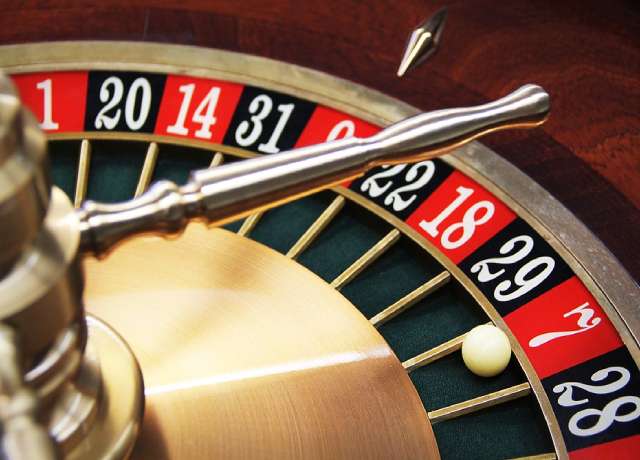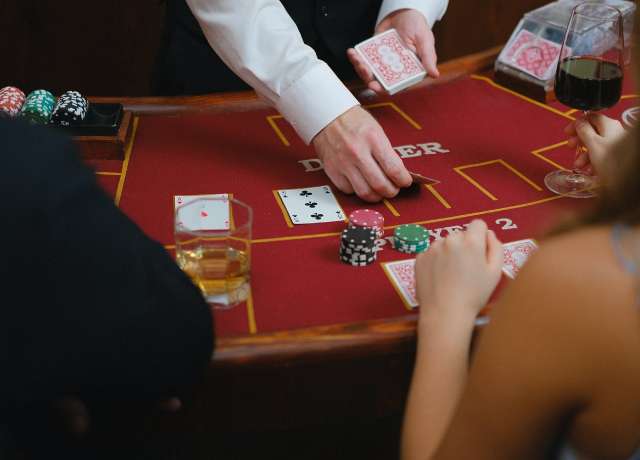In the glittering world of casinos, two games stand out as timeless classics that have captivated the hearts and minds of gamblers for centuries: Poker and Roulette. Both games, with their distinct histories, have journeyed from their places of origin to casino tables around the world, each leaving an indelible mark on the fabric of global gambling culture.
While Poker’s strategic depth beckons enthusiasts into a dance of psychology and skill, Roulette’s spinning allure offers the quintessential blend of chance and anticipation. This article delves into the intriguing origins of these two iconic games and explores the magnetic charm that continues to draw people from all walks of life to place their bets and test their fortunes. Whether it’s the flip of a card or the bounce of a ball, the stories of Poker and Roulette are as rich and varied as the countless players who’ve embraced them.
The Birth of Poker
The genesis of Poker traces back to numerous card games played across ancient civilizations. It’s believed that the Chinese were playing a form of domino-card game reminiscent of Poker as early as the 10th century. Later, in 16th century Persia, a game called “As Nas” was played with a 20-card deck, bearing semblance to modern Poker hands. European explorers and settlers contributed further to its evolution. The Spanish played “Primero,” the French had “Poque,” and the Germans played “Pochen.” As these games traveled, they blended and morphed, but their core essence remained—a game of strategy, bluff, and betting.
By the time Poker reached the shores of North America in the early 19th century, it began to take a form familiar to us today. It was in the American South that Poker adopted a standard 52-card deck and introduced the flush. The game’s popularity soared post-Civil War, with variants like Stud Poker emerging.
The 20th century saw the game’s elevation to new heights, especially with the introduction of Texas Hold’em. This particular variant became synonymous with tournament play and attracted millions worldwide.
One of the significant catalysts for Poker’s global popularity in the digital age has been online platforms, particularly innovative ones like BC.Hash games, which brought the traditional card game into the virtual realm, allowing enthusiasts from all corners of the globe to experience the thrill of Poker from the comfort of their homes.
The Intriguing Origins of Roulette
Roulette, with its spinning allure and mesmerizing wheel, conjures up images of opulent European casinos, elegantly dressed gamblers, and the thrilling unpredictability of chance. But how did this game come to be, and what are its roots?
The word “Roulette” is derived from the French term for “little wheel.” However, the game’s origins are not solely French, as the history of games involving spinning wheels dates back to ancient civilizations. There are accounts of Roman soldiers spinning chariot wheels for amusement, and even age-old Chinese games that bear a remote similarity to Roulette. But it’s in 18th century France that the game, as we recognize it today, truly came to life.
Blaise Pascal, the renowned French mathematician, inadvertently laid the groundwork for Roulette while attempting to create a perpetual motion machine. While his endeavor in perpetual motion did not succeed, the Roulette wheel was born. By the late 18th century, the game had evolved with numbers and pockets, becoming increasingly popular in French casinos.
The game then traveled across Europe, with the “single zero” version preferred in places like Monte Carlo, which became a casino haven. As it made its way to America, certain modifications were introduced, including the addition of a “double zero,” giving birth to the American version of Roulette.
Gambling Industry
The global gambling industry, with its vast expanse and diverse offerings, stands as one of the most dynamic sectors in the entertainment world. From the neon lights of Las Vegas to the bustling streets of Macau, and from the historic casinos of Monte Carlo to the digital platforms accessible from one’s living room, gambling has carved its niche, drawing millions into its captivating embrace.
Historically, gambling has roots in almost every culture and civilization. Ancient Chinese lotteries, Roman dice games, and Indian games like “Pasa ” (a precursor to modern-day Ludo) all attest to humanity’s long standing relationship with chance and fortune-seeking endeavors. Over time, these localized practices evolved, culminating in the establishment of grand casinos, race tracks, and betting parlors, solidifying the gambling industry’s stature as both a form of entertainment and a significant economic contributor.
With the advent of the digital age, the industry underwent a revolutionary transformation. Online platforms emerged, democratizing access to gambling like never before. Players no longer needed to travel to iconic gambling destinations; the excitement of the casino was now just a click away. A particularly notable evolution was seen in the rise of online platforms in regions where traditional brick-and-mortar establishments were scarce or faced regulatory challenges. For instance, the Indian gambling site phenomenon is a testament to this shift, catering to a massive audience in India seeking diverse gambling experiences, from card games to slot machines, all from the convenience of their devices.
However, with its impressive growth, the industry also grapples with challenges. Concerns about addiction, ethical considerations, and the need for robust regulatory frameworks have been persistent discussions among stakeholders. Moreover, as technology continues to evolve, adapting and integrating innovations — like virtual reality or blockchain — while ensuring fairness and security becomes paramount.
Similarities in Global Appeal
| Aspect | Description | Examples |
| Historical Significance | Many games have historical roots, pointing to a universal human inclination towards games of chance | Ancient Chinese lotteries, Roman dice games, traditional card games in Bangladesh |
| Social Interaction | Gambling often acts as a social hub, drawing people together | Casinos, both physical and online like BC Game Bangladesh, offer multiplayer games encouraging interaction |
| Economic Impact | The gambling industry contributes significantly to economies worldwide | Las Vegas in the USA, Macau in China, and emerging online platforms in regions like Bangladesh |
| Entertainment Value | The thrill of unpredictability and chance is universally appealing | Slot machines, roulette, card games, and various offerings on platforms like BC Game Bangladesh |
| Adaptability | The industry adapts to cultural, technological, and regulatory shifts | Traditional games modified for local preferences, introduction of online platforms, mobile apps, etc. |
| Regulation & Trust | Trust in fair play and secure transactions underpins the industry’s success | Licensing bodies, RNG (Random Number Generation) in online games, transparent practices in platforms such as BC Game Bangladesh |
Conclusion
The global allure of gambling is undeniable, cutting across cultures, histories, and geographies. At its core, this appeal is rooted in the human penchant for thrill, chance, and the age-old pursuit of fortune. From historical dice games of ancient civilizations to the sophisticated online platforms of today, like BC Game Bangladesh, gambling has evolved while retaining its universal charm.
As technology continues to shape the future of this industry, and as regions diversify their offerings to cater to local tastes, the foundational elements of excitement, risk, and reward remain consistent. This shared understanding and appreciation ensure that the world of gambling will continue to captivate and entertain, regardless of where the dice lands next.


